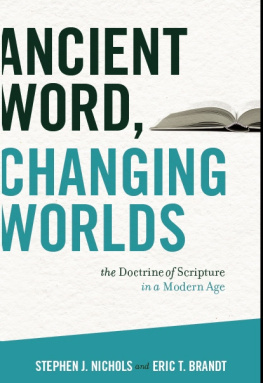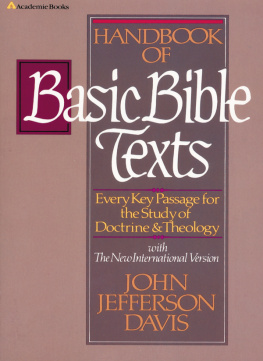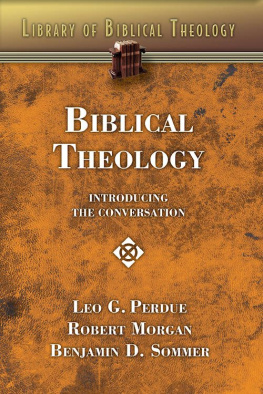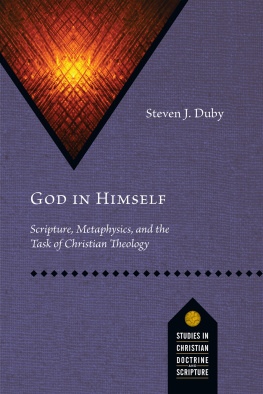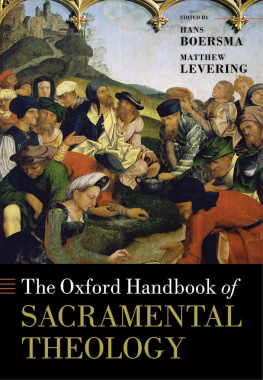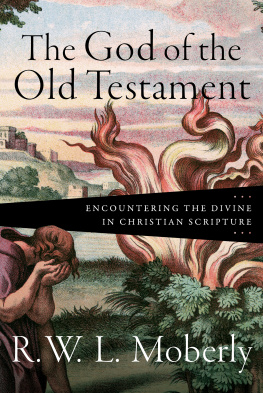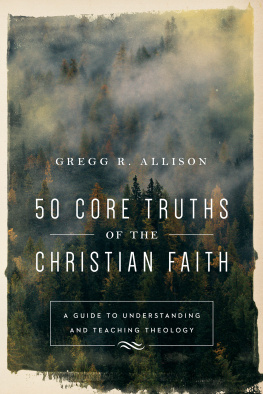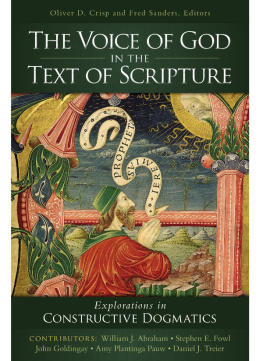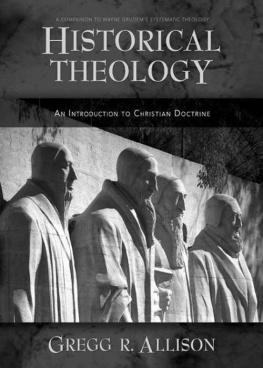Divine Eloquence and Human Transformation
Rethinking Scripture and History through Gregory of Nazianzus and Hans Frei
Ben Fulford
Fortress Press
Minneapolis
DIVINE ELOQUENCE AND HUMAN TRANSFORMATION
Rethinking Scripture and History through Gregory of Nazianzus and Hans Frei
Copyright 2013 Fortress Press. All rights reserved. Except for brief quotations in critical articles or reviews, no part of this book may be reproduced in any manner without prior written permission from the publisher. Visit http://www.augsburgfortress.org/copyrights/ or write to Permissions, Augsburg Fortress, Box 1209, Minneapolis, MN 55440.
Cover design: Alisha Lofgren
Library of Congress Cataloging-in-Publication Data is available
Print ISBN: 978-1-4514-6548-8
eBook ISBN: 978-1-4514-6960-8
The paper used in this publication meets the minimum requirements of American National Standard for Information Sciences Permanence of Paper for Printed Library Materials, ANSI Z329.48-1984.
Manufactured in the U.S.A.
This book was produced using PressBooks.com.
Contents
I cite Gregorys texts by the standard oration, epistle, or poem number and by edition, using the following abbreviations (for full references, see the bibliography):
PG J.-P. Migne, ed., Patrologia Graeca
SCSources Chrtiennes
Some of Hans Freis writings are available online as part of the Unpublished Pieces, edited by Mike Higton. I have also included their catalogue numbers in the Yale Divinity School archive, using the abbreviation YDS for Yale Divinity School.
The writing of this book has been a lengthy affair, and I have incurred many debts during its long gestation.
The research and writing of the thesis from which this book has been developed was made possible by awards of a Crosse Studentship from the Faculty of Divinity, University of Cambridge, by a Domestic Research Scholarship from the University of Cambridge, and by a doctoral award from the Arts and Humanities Research Council, and I am grateful to all these bodies for their support.
I also owe considerable debts to a number of people. Anna Williams first introduced me to both Gregory and Frei, fostered a love of theological texts, and supervised the dissertation on which this book is based. Denys Turner supervised me during Annas research leave in 2005 and provided much-needed encouragement and insight. Mike Higton read and commented on a draft of the Frei material in the thesis, and he and Morwenna Ludlow also gave me feedback on the whole thesis with a view to publication. Tim Hull has read both the original dissertation and drafts of revised material and provided encouragement, stimulating criticism, and intellectual comradeship. I owe a great deal to the late Dan Hardy, who generously read and gave time to discuss drafts of the thesis and continued to do so even after he was diagnosed with what turned out to be a fatal illness. I am grateful too to David Ford and Frances Young, who examined the thesis and whose constructive feedback has been in my mind as I revised it for publication, and to the late Brevard Childs, who kindly discussed Hans Frei with me. Thanks too to Christine Ainsley, then librarian at St. Johns College, Nottingham, who miraculously obtained a copy of Freis doctoral dissertation. Im grateful also to Suzanne Abrams Rebillard for allowing me to see a copy of her chapter on Historiography as Devotion before it was published.
I have also benefited from conversations and encouragement from many people along the way: Ed Morgan, Brett and Ali Gray, John Hughes, James Walters, Tom Greggs, Nick Adams, Ben Quash, Susannah Ticciati, Rachel Muers, Greg Seach, Jamie Hawkey, Simeon Zahl, Andy Angel, David Neaum, Rachel Greene, Philip McCosker, Doug Ingram, Karen Kilby, Willie Young, Jim Fodor, Chad Pecknold, Imogen Atkins, Angela Bryan, Michael Leyden, Dawn Llewellyn, Craig Hovey, David Runcorn and Andii Bowsher, to name a few. St Johns College, Nottingham gave me research leave in Michaelmas 2011, and the department of Theology and Religious Studies at the University of Chester has made me very welcome and, with the support of Professor David Clough, enabled me to find time to finish the manuscript. I benefited from being able to discuss some of the ideas developed here in research seminars at the University of Cambridge, Kings College London, and St. Johns College, Nottingham.
My deepest debts are to my family: my Mum and Dad and sister Nancy; Robin and Carol, my parents-in-law; my sons, Matthew and Nathan, and above all to Alison whose patient and loving support, unfailing encouragement, commitment to theology, and friendship have sustained me when I thought the project would never end. To her the book is dedicated.
The contemporary movement in theology that seeks to recover ways of understanding and reading the Bible as Christian Scripture has, in large part, been constituted over against a captivity of the Bible to the hegemonic claims of historical criticism. Much thinking in this movement challenges therefore that understanding of meaning or reframes the issue in terms of a theological account of the Bible as Holy Scripture. Historical-critical inquiry, in all its variety, however, is informed by a more basic sensibility, a sense of the historical character of reality, which poses serious challenges for Christian theology and for the whole project of the theology and theological interpretation of Scripture. Yet this challenge goes largely unaddressed in much of the literature, and where addressed, its full force does not seem to have been registered. What follows, therefore, lays out one way of beginning to address these challenges, drawing on the theology and exegesis of a fourth-century theologian-bishop, Gregory of Nazianzus, and the thought of a twentieth-century theologian, Hans Frei. At its heart is the proposal that the ontology, meaning, and meaningfulness of Scripture can be located within a properly theological historical sensibility centered upon Jesus Christ as the one who in his historical existence is the luminous presence of God and the focal center of Gods ordering of all of history, in all its contingency and complexity. The force of this meaning as the frail bearer of the presence of Christ is mediated through a scripturally wrought rhetoric, deploying the story of Christ and other texts in connection to him, to further the transformation of human beings and the slow and tenuous reshaping of human society.
I
The sense of history as a vast, complex network of interrelated phenomena that are, in principle, explicable in terms of their mutual relations lies at the heart of Ernst Troeltschs careful, critically realistic account of historiography. It also provides, on his account, a strong objection to belief in the manifestation of the absolute in history, and this difficulty has profound consequences for the theology of Scripture, as I explore in Chapter 1, and hence for the current movement for the recovery of the theological interpretation of Scripture.
The signs are abundant of the vitality now long-lived and broad tendency in recent theology to seek to recover theological and ecclesial ways of reading Scripture, supported by theological accounts of Scriptures reality, meaning, and significance.
The first takes the canon of biblical texts as its focus, and proposes that understood rightly it evinces a powerful coherence that allows it to serve as the vehicle of the divine will. Here we might instance Brevard Childss proposal that the canonical shaping of scriptural texts and of the canon as a whole is determinative of the meaning of the texts whereby they express Gods intentions. All these accounts resist the constriction of biblical meaning to original authorial intentions or ancient receptions or reconstructions of the pasts to which they refer, without letting go of historical referentiality, but none grapple substantially with the issues raised by historical consciousness.


